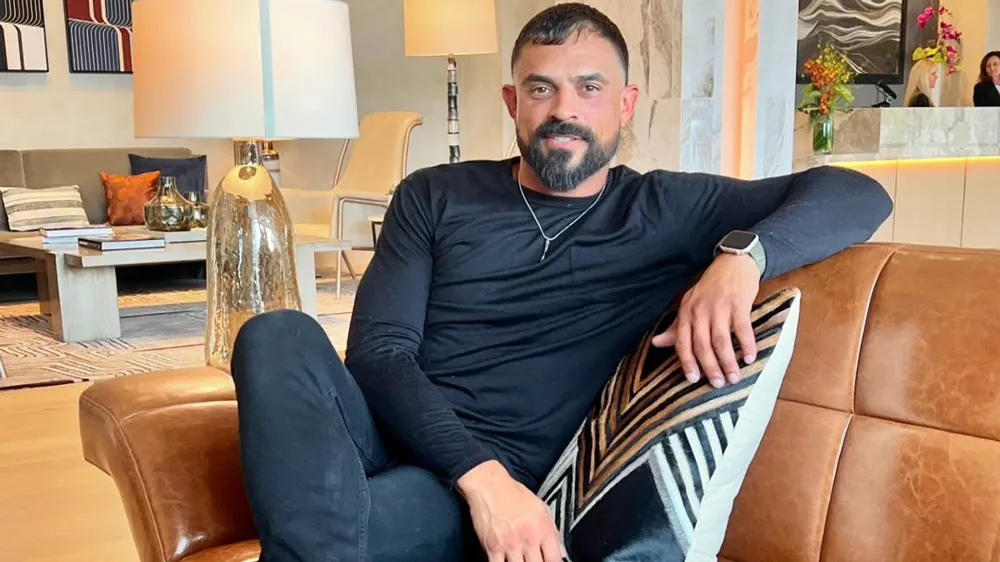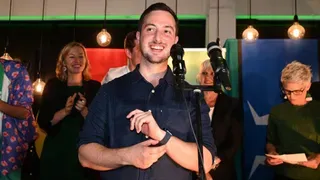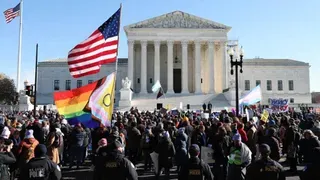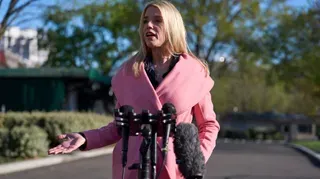October 14, 2009
Ultra-Orthodox Jews No Longer Ignoring Child Sex Abuse
Kilian Melloy READ TIME: 3 MIN.
New York's Ultra-Orthodox Jewish population is beginning to see the limits of traditional proscriptions on talking to authorities outside the faith about certain matters, such as crimes against members of the community itself.
Case in point: child sexual molestation, a crime that for years, an Oct. 13 New York Times article said, saw a number of arrests made annually in every demographic in New York except for the Ultra-Orthodax.
But recent headlines and efforts by DA Charles J. Hynes have helped convince the Ultra-Orthodox of something they simply did not used to believe: that there could be child molesters in their midst.
The culture's strict disapproval of involving outside authority in matters concerning family and business had long kept child molestation cases involving the community, who call themselves the haredi, from the criminal justice system.
However, the rabbinical courts that are meant to address such issues are now being seen as inadequate to handle cases of child sexual abuse.
The New York Times article quoted one father who said, "I'm not one who believes rabbis are capable to handle this." The man's son, 10, informed him last year of abuse allegedly perpetrated on him by a neighbor. Rather than leave it to the rabbinical court, the father went to the civil authorities.
"What we have witnessed in the past year is completely unprecedented," the artricel quoted the chief of the Brooklyn DA's sex crimes bureau, Rhonnie Jaus.
"This would be inconceivable just a few years ago."
But in that time, the media have played a role in educating the haredi as to the nature and extent of the problem, which is believed to be as prevalent in the Ultra-Orthodox community as in any other demographic.
Newspapers and other media have taken note of such crimes within the haredi culture recently, leading to headlines in cases such as that of Rabbi Yaakov Weiss, founder of an upstate New York Hebrew school who is accused of improper contact with two male students in a ritual bath.
The case of Brooklyn Rabbi Yehuda Kolko, accused of abusing at least three victims over the course of decades, was also profiled in the media, including online at a Web site called Exposemolesters.
Survivors for Justice founder Ben Hirsch called Jewish online publications and groups like his own "a major catalyst" in convincing haredi victims and parents to go outside of rabbinical authority in such cases, despite traditional proscriptions, the Times article reported.
Ancient religious proscriptions among the haredi may be giving way to more contemporary understanding in other ways, as well. Though some haredi do not even admit that gay exist--at least, not among their community--otehrs have begun to address the issue openly, such as Rabbi Menachem Burstein, an Ultra-Orthodox who has a comparatively compassionate view on gays.
Burstein does not endorse GLTB visibility--"I say to them, remain in the closet and I will make every effort to build as large and respectable a closet as possible for you," he was quoted in the media as saying--but he did offer the opinion that a small fraction of gays were not simply acting out in perverse defiance, but were inherently attracted to others of the same gender.
Burstein reckoned that those souls also deserved pastoral care: "I believe these are a small number, but we should not forsake them."
Burstein approached the issue from the perspective of being in charge of a fertility group, the Puah Institute; it was from the point of view of trying to help gay observant Jews become family men that Burstein offered his thoughts, and suggested that perhaps two men could be in a relationship and not break religious law--as long as they remained celibate.
Meantime, Burstein suggested, one or both men could marry, with the aim of procreation.
Part of the arrangement, however, would entail therapy from a group dedicated to "helping" religious gays.
Burstein explained that his fertility group is "committed to finding a solution for every part of society."
Moreover, Burstein supposed that although "a rabbi cannot change the prohibition of [sexual intimacy between men]," he could work around that proscription creatively and constructively.
Gay sex, the Rabbi noted, is forbidden as a matter of Scripture, saying, "it is from the Torah."
However, "Once that is accepted, then we can look for a solution within those parameters."
Kilian Melloy serves as EDGE Media Network's Associate Arts Editor and Staff Contributor. His professional memberships include the National Lesbian & Gay Journalists Association, the Boston Online Film Critics Association, The Gay and Lesbian Entertainment Critics Association, and the Boston Theater Critics Association's Elliot Norton Awards Committee.







